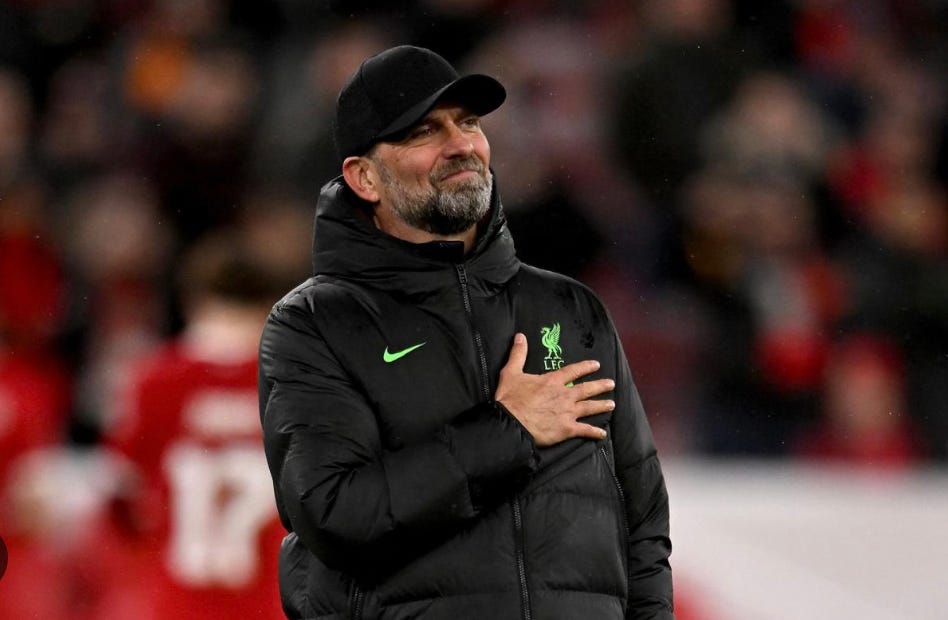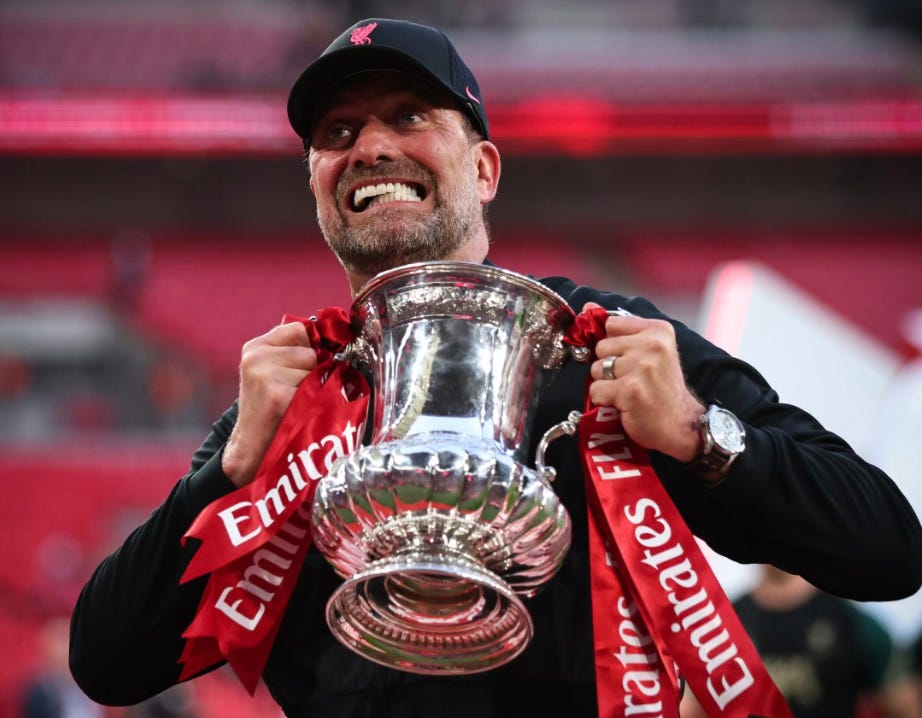Jürgen Klopp and the Power of Superstrengths
Klopp the Superstrengther??
When it comes to modern football management, few figures stand out as prominently as Jürgen Klopp. The former Liverpool manager is not just renowned for his charismatic personality and tactical acumen but also for his unique approach to player development and team-building. But where among Klopp’s many footballing philosophies does the concept of “superstrengths” belong? The idea that maximising a player's unique abilities is more effective than demanding perfection in every aspect of the game?
One anecdote perfectly encapsulates Klopp’s belief in superstrengths, and it involves Liverpool’s left-back, Andrew Robertson. When Klopp was warned about Robertson’s defensive capabilities, he responded with a statement that reflected his unconventional approach:
He didn’t care if Robertson could defend or not
Klopp was more concerned with Robertson’s ability to contribute to the team’s attacking play. He saw Robertson’s attacking prowess as a superstrength, one that could be leveraged to the team’s advantage, while any potential defensive shortcomings could be mitigated by providing additional cover.
This mindset demonstrates Klopp’s commitment to a practical approach in team management. Rather than demanding an idealized, perfect player, Klopp focuses on finding creative solutions to enhance each player’s strengths while minimizing their weaknesses.
Klopp often talked of his preferences for players with “extreme capabilities”
His philosophy is rooted in the belief that no player needs to excel in every aspect of the game; instead, they need to bring one or two “extreme characteristics” to the table—traits that can significantly impact the outcome of a match. These game-changing abilities are what Klopp values most, and he’s willing to build his team around these superstrengths.
Klopp’s preference for players with extreme characteristics is more than just a tactical choice; it’s a reflection of his broader philosophy about football and life. In his eyes, the collective strength of a team doesn’t come from having eleven perfect players on the pitch. Instead, it’s about assembling a group where each individual’s superstrengths can be maximized, and their weaknesses can be compensated for by the strengths of others.
This approach is not only evident in Klopp’s handling of Robertson but also in how he has managed other key players at Liverpool. For example, Mohamed Salah’s incredible pace and goal-scoring ability are leveraged to the fullest, with the team’s tactics often designed to give him the space and opportunities he needs to exploit his strengths. Similarly, Virgil van Dijk’s exceptional defensive awareness and leadership have made him the cornerstone of Liverpool’s defense, even if he might not be the fastest or most technically gifted player in other areas.
Klopp’s focus on superstrengths is arguably why he had been so successful at Liverpool. By identifying and harnessing the unique abilities of each player, he created a team that was greater than the sum of its parts.
In an era where the quest for the “complete player” is often seen as the ultimate goal, Klopp’s approach offers a refreshing alternative. It’s a reminder that in football, as in life, it’s our unique strengths that define us, and success often comes from embracing and maximizing these strengths, rather than trying to be perfect in every way.



